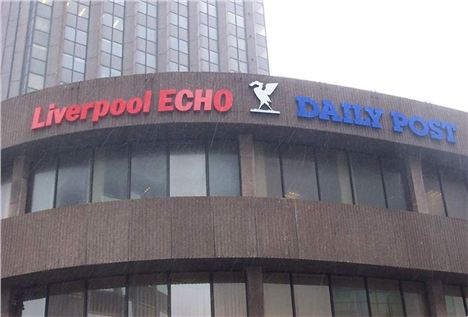SO who killed the Liverpool Post? It wasn’t Murdoch of any of the big press barons. It wasn’t the decision-makers of Liverpool eager to throttle any publication highlighting their sometimes unpopular decisions. Its death is a business and economic decision by Trinity Mirror, the company that owns the paper and a string of others.
To me the end of the Daily Post is a case of premature euthanasia. Trinity Mirror and other newspaper owners have thrown in the towel, or should that be newsprint, far too early. As they say, there was still plenty of life in the old dog.
The Post was subjected to a media version of the Liverpool Care Pathway, denied the elixir of fuel, and that could only ever lead to one ending
When the paper switched last year from a daily to a weekly, I thought it would have a fighting chance of survival. A brave new world beckoned as a weekly, the chance to examine and scrutinise the topsy turvy worlds of politics and business, the opportunity to carefully and thoughtfully examine the stories affecting every Merseysider, an eye on culture and the arts, leisure and entertainment.
You would think a city region with a population of around 1.7m would provide a sizeable army of readers. Starved of sufficient editorial resources, with little or no marketing or promotion, it was left to fend for itself in a cruel, changing world.
Once the executives of the papers had decided there was no or little future in print journalism, it was a case of managed decline. It is as though the Post was subjected to a media version of the Liverpool Care Pathway, denied the elixir of fuel, and that could only ever lead to one ending.
I am one of the few journalists still working to have been based at the company’s old office in Victoria Street, now known as Millennium House. In the early 70s the Daily Post sales were in six-figures, and Echo sales were even higher.
As Father of the Chapel, the antiquated name given to chairs of trade unions in the print industry, I was involved in often heated discussions about "new technology". The old print unions were, understandably, fighting for their lives.

Once one of the company bosses said to me: "Do you know Larry, the new technology we are talking about is upstairs in boxes. The boxes are unopened, and yet the equipment is already obsolete." Such were the rapid changes.
In another exchange one of the bosses asked why journalists expected more money when computers would make our lives easier. "Because, that’s why," was the only reply. Our own union, the NUJ, was dragged into the battle; we had no say.
Out went the old hot metal, the copy boys (and girls), the messengers, a whole raft of people disappeared to be replaced by magical little computers.
It gave the newspaper owners the chance to invest money saved in quality journalism. But instead they kept the savings for themselves.
Today’s readers look to various electronic devices for their daily diets of news and information, the recession took away loads of advertising, and the slump followed.
Yet we are constantly reading that grey Britain, the over 50s, are the biggest group, millions of them wanting good quality newspapers. A sector of people eager to grease their fingers with printer’s ink rather than waltz over keyboards on a handheld thingy.
The writing, though, was on the wall long before the arrival of the computer age. When I joined the Liverpool Daily Post & Echo Company Ltd it was a family-owned business. The great Jeans family set up a business structure to ward off potential raids by the media moguls. The company bought the family firms that had run the weekly groups in Wirral and Southport. Essentially they had cleverly boxed off Merseyside into a cosy newspaper dynasty, a virtual monopoly.
They expanded, adding a papermaking operation called Trinity to the fold, but these offshoots were subsidiaries of the LDP Co Ltd. They bought Mirror Group Newspapers, post Maxwell, and that’s when the gravediggers started to prepare their worst.
Trinity Mirror was formed and what had been the old granddad, the LDPE, became no more than a grandchild. The centre of gravity moved from Liverpool to Chester and then to Canary Wharf. One by one the Liverpool directors who had flown the Merseyside flag in faraway London left, until there were no home-grown advocates
In the end there is a cocktail of reasons to explain the death of a newspaper. But at the end of the day it could have been avoided.












